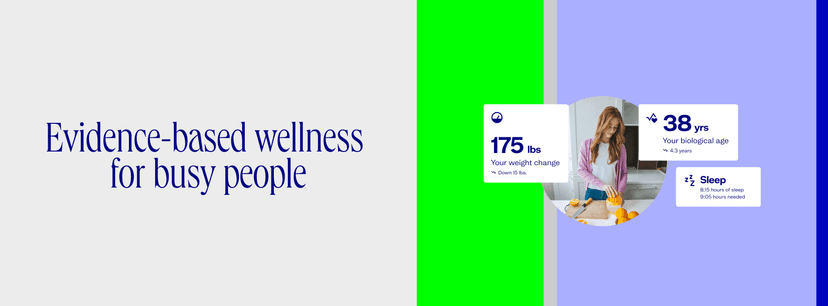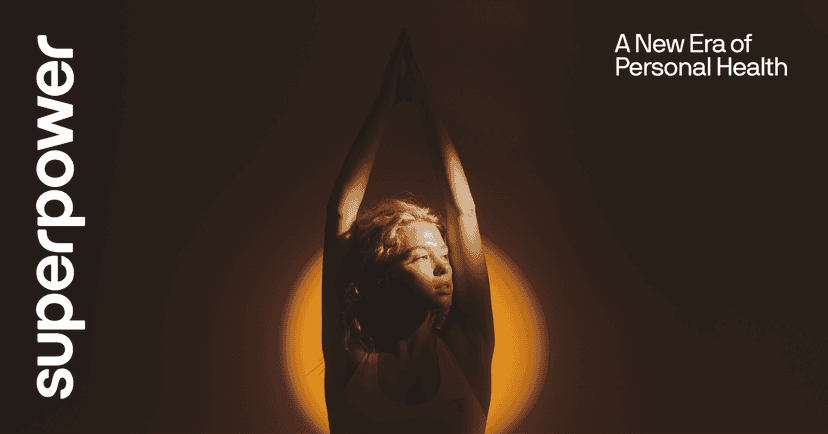Aging gracefully is about more than just looking good; it's about feeling good and staying healthy as you get older. By focusing on both your physical and mental well-being, you can enjoy a higher quality of life. This article will explore practical strategies to help you age in a healthy and happy way.
Key Takeaways
- Eating whole foods and staying hydrated are vital for nourishing your body.
- Regular physical activity can help maintain your strength and mobility.
- Practicing mindfulness and managing stress are crucial for mental wellness.
- Building and maintaining social connections can improve your emotional health.
- Protecting your skin and getting regular health check-ups are essential for overall health.
Nourishing Your Body with Whole Foods
Benefits of a Balanced Diet
Eating whole foods is more than just a diet; it's a lifestyle. By focusing on vegetables, fruits, whole grains, nuts, and low-fat dairy, you can boost your overall health. Studies show that this way of eating can help you live longer and protect against heart disease, cancer, Parkinson’s, and Alzheimer’s disease.
Essential Nutrients for Aging
As you age, your body needs specific nutrients to stay healthy. Here are some key ones:
- Fruits and Vegetables: Packed with vitamins and minerals.
- Whole Grains: Provide essential fiber.
- Healthy Fats: Found in nuts and avocados.
- Lean or Plant-Based Protein: Such as fish and beans.
Hydration and Its Importance
Staying hydrated is crucial for maintaining good health. Water helps with digestion, keeps your skin healthy, and regulates body temperature. Aim to drink at least 8 glasses of water a day.
Drinking enough water is one of the simplest ways to improve your health. Make it a habit to carry a water bottle with you wherever you go.
Staying Physically Active
Types of Exercises for Seniors
Engaging in regular physical activity is essential for maintaining health and independence as you age. Experts recommend incorporating four types of exercises into your weekly routine:
- Aerobic exercises: Aim for 150 minutes of moderate-intensity activities like brisk walking, cycling, or swimming.
- Strength training: Include two sessions per week of muscle-building activities such as lifting weights or using resistance bands.
- Balance exercises: Practice balance-enhancing activities like tai chi at least three times a week.
- Flexibility exercises: Perform stretching or yoga exercises two to three times weekly to maintain flexibility.
Incorporating Movement into Daily Life
Staying active doesn't mean you have to hit the gym every day. There are many ways to incorporate movement into your daily routine:
- Take the stairs instead of the elevator.
- Go for a walk during your lunch break.
- Participate in group exercise classes or community sports.
- Engage in hobbies that require physical activity, such as gardening or dancing.
Benefits of Regular Physical Activity
Regular physical activity offers numerous benefits for seniors, including:
- Improved cardiovascular health: Reduces the risk of heart disease and high blood pressure.
- Enhanced mental well-being: Lowers the risk of depression and anxiety, and improves cognitive function.
- Better mobility and balance: Reduces the risk of falls and helps maintain independence.
- Increased social interaction: Participating in group activities can help you stay connected with others.
Staying physically active is one of the best ways to ensure a healthy and fulfilling life as you age. It not only boosts your physical health but also enhances your mental and emotional well-being.
Mental Wellness and Mindfulness
Mindfulness is about living in the moment and accepting it as it is. It has many health benefits that can help you age better, such as improved focus, better memory, and lower stress. To practice mindfulness, you can try:
- Meditation
- Deep breathing exercises
- Yoga
Stress can take a toll on your mental and physical health. It's important to find ways to manage it. Some effective methods include:
- Regular physical activity
- Talking to friends or family
- Engaging in hobbies
Keeping your brain active is crucial as you age. Cognitive exercises can help maintain your brain health. Some activities to consider are:
- Puzzles and brain games
- Reading books
- Learning new skills
Staying mentally active and practicing mindfulness can greatly improve your quality of life as you age.
Building and Maintaining Social Connections
Importance of Social Interaction
Building or maintaining relationships with friends and family offers mental, emotional, and physical health benefits, such as:
- Better mood, stress management, self-esteem, and life satisfaction
- Lower risk of depression
- Higher likelihood of recovery from serious stress
- Increased longevity
Ways to Stay Connected
It can be challenging to connect with others, especially as you age. These methods can help combat loneliness and keep you connected with others:
- Plan visits with friends or loved ones.
- Connect regularly with friends and family. Spend time with people you enjoy and who make you feel upbeat. It may be a neighbor who you like to exercise with, a lunch date with an old friend, shopping with your children, or playing with your grandkids. Even if you are not close by, call or email frequently to keep relationships fresh.
- Volunteer. Giving back to the community is a wonderful way to strengthen social bonds and meet others interested in similar activities or who share similar values. Even if your mobility becomes limited, you can get involved by volunteering on the phone.
- Find support groups in times of change. If you or a loved one is coping with a serious illness or recent loss, it can be very helpful to participate in a support group with others undergoing the same challenges.
Volunteering and Community Involvement
Volunteering is a great way to stay connected and give back to the community. It helps you meet new people and build strong social bonds. Even if you have limited mobility, you can still volunteer by helping out over the phone or online. Volunteering not only benefits others but also boosts your own well-being.
Protecting Your Skin and Overall Health
Taking care of your skin is essential for maintaining its health and appearance. Stick to gentle products in your skincare routine to avoid irritation. Cleanse your skin daily, moisturize, and exfoliate weekly to remove dead skin cells.
Too much sun can harm your skin and increase the risk of skin cancer. Use a broad-spectrum sunscreen with SPF 30 or higher every day. Wear protective clothing, such as hats and long sleeves, and try to stay out of the sun during peak hours, usually between noon and 2 p.m.
Regular health screenings are crucial for early detection of potential issues. Schedule yearly skin cancer screenings with your dermatologist. Additionally, keep up with other health check-ups to ensure your overall well-being.
Staying hydrated is also important for your skin and overall health. Drink plenty of water throughout the day to keep your skin looking its best.
Adopting Healthy Sleep Habits
Importance of Quality Sleep
Getting enough sleep is crucial for your overall health. Adults should aim for 7 to 9 hours of sleep each night. Poor sleep can lead to various health issues, including a higher risk of chronic diseases.
Tips for Better Sleep
Here are some tips to help you sleep better:
- Go to bed and wake up at the same time every day.
- Turn off your screens at least 1 hour before bed.
- Avoid caffeine, alcohol, and large meals before bed.
- Try not to nap after 2 PM and keep naps under 30 minutes.
- Create a relaxing nighttime routine by listening to music, reading a book, or doing a few yoga poses.
Impact of Sleep on Overall Health
Lack of sleep can affect your mood, memory, and even your immune system. Those over 65 who sleep poorly have a higher mortality rate over the next 5 years. Improving your sleep habits can lead to a healthier, happier life.
Good sleep is the foundation of a healthy lifestyle. Prioritize it to improve your well-being.
Avoiding Harmful Habits
Risks of Smoking and Excessive Drinking
Smoking and excessive drinking can seriously harm your health. Tobacco affects almost every organ in your body, leading to heart disease, cancer, and lung problems. Alcohol abuse can damage your liver, brain, and heart. It's never too late to quit smoking or reduce alcohol intake. Your body starts to heal soon after you stop.
Healthy Alternatives
Finding healthy alternatives can help you avoid harmful habits. Here are some suggestions:
- Exercise: Physical activity can reduce cravings and improve your mood.
- Hobbies: Engage in activities you enjoy to keep your mind off smoking or drinking.
- Healthy Snacks: Chew on fruits or nuts instead of smoking or drinking.
Seeking Professional Help
If you're struggling to quit smoking or drinking, don't hesitate to seek professional help. Doctors can prescribe medications or recommend counseling. Support groups can also provide motivation and advice. Remember, taking the first step is crucial for a healthier life.
Quitting harmful habits can significantly improve your quality of life and increase your lifespan.
Conclusion
Aging gracefully is about more than just looking good; it's about feeling good and staying healthy. By focusing on both your physical and mental well-being, you can enjoy a fuller, happier life as you age. Simple habits like eating nutritious foods, staying active, and keeping your mind sharp can make a big difference. Remember, it's never too late to start making positive changes. Embrace these strategies, and you'll be on your way to aging gracefully and living your best life.
Frequently Asked Questions
What are the best foods to eat as I age?
Eating whole foods like fruits, vegetables, lean proteins, and whole grains is important. These foods give you the nutrients you need to stay healthy.
How often should seniors exercise?
Seniors should aim for at least 150 minutes of moderate exercise each week. This can include walking, swimming, or even gardening.
What can I do to keep my mind sharp?
Keep your mind active by reading, doing puzzles, or learning new skills. Practicing mindfulness and managing stress also help.
Why is social interaction important for older adults?
Staying connected with others can improve your mood and mental health. It can also lower the risk of depression and dementia.
How much sleep do older adults need?
Older adults should aim for 7-8 hours of quality sleep each night. Good sleep helps with memory, mood, and overall health.
What are some ways to protect my skin as I age?
Use sunscreen every day, moisturize regularly, and get regular skin check-ups to catch any issues early.
























